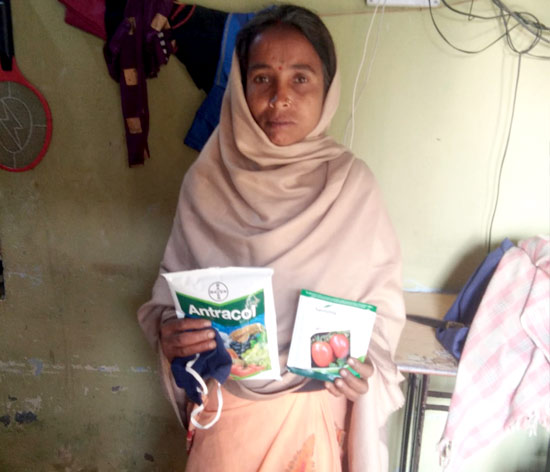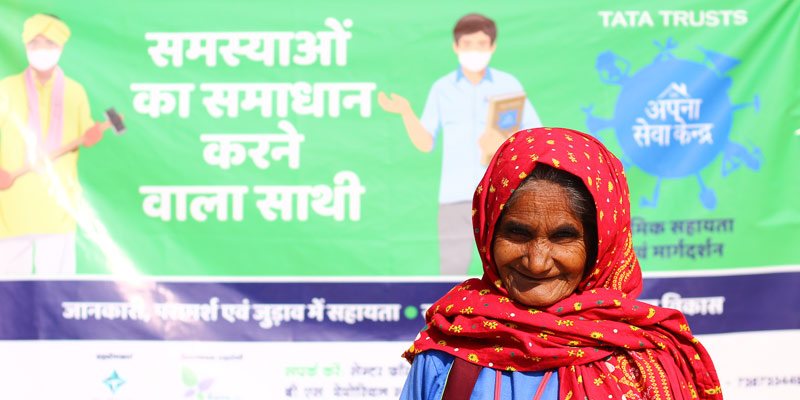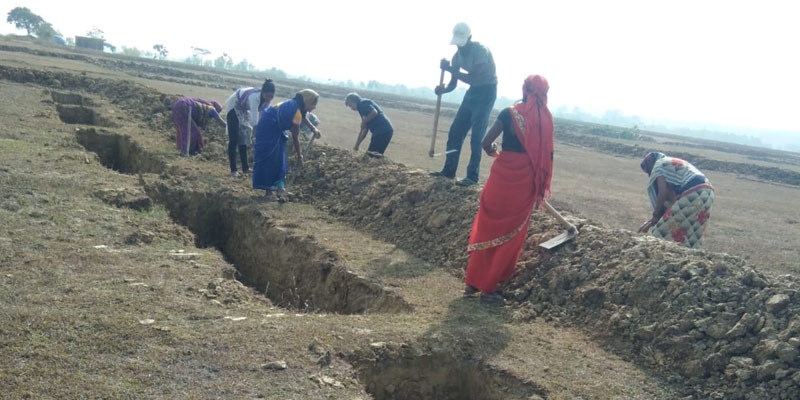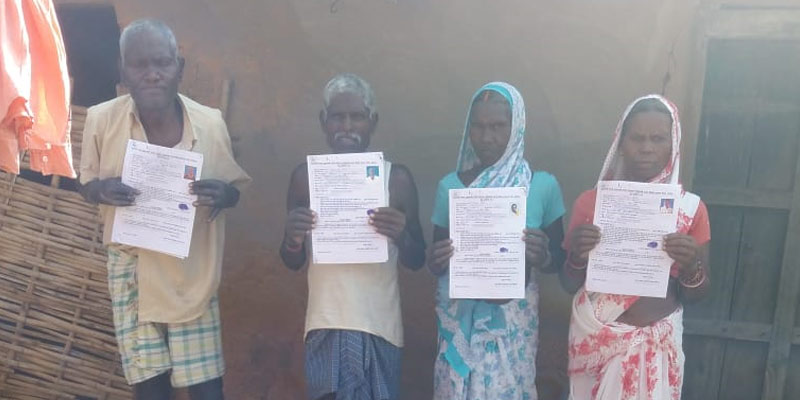
In March 2020, the Central Government had to enforce a complete nationwide lockdown to curb the further outbreak of Covid-19. The sudden and unexpected announcement created uncertainty for all migrant workers in towns and cities, far from their homes. Overnight, they found themselves stranded, with no employment, resources, or transport to make their way back home.
The situation did not spare their families back in the villages who were left with no income. This situation led to the launch of Mission Gaurav, a Tata Trusts-backed initiative to help migrant workers' and their families. The focus is to support, empower and build resilience within the vulnerable migrant households (HHs) to withstand shocks by providing access to government entitlements and schemes, facilitating banking operations, connecting to non-farm-based livelihood opportunities, skill mapping and linkage to available skilling opportunities.
A troubled time
Babita Devi lives in Bariyath village of Hazaribagh district in Jharkhand with her four children. Her husband, Sanjay, worked at a construction site in Mumbai. Like many other Dalits in their village, the family had no agricultural land to sustain themselves. They earned by working as labourers on farms. Many, like Sanjay, had travelled to cities to earn through part-time jobs, such as labourers on construction sites.
When the lockdown was announced, the construction site where Sanjay worked was shut down, leaving him to fend for himself. He stayed back in Mumbai in the hope that the situation would improve. With each passing day, and no wages, the situation became grimmer.
“While my husband was stuck in Mumbai, I was struggling at home to keep my children fed and to run the house. It was tough as we had very little savings, and I had to beg the grocery stores to give me rations on loan. There was so much uncertainty. I did not know how long the lockdown would last or when my husband would return home,” recollects Babita.
A helping hand
For hundreds of families like Babita and Sanjay, Mission Gaurav became a source of hope to tide over the crisis. When Sanjay was stranded in Mumbai, Kajal helped Babita by providing them with rations. Kajal is a Jan Saathi, a community facilitator, working with Jan Sahas (an implementation partner) for the Tata Trusts’ Mission Gaurav initiative .
Kajal's support gave Babita the confidence to take care of her family. She also helped Babita find employment under Mahatma Gandhi National Rural Employment Guarantee Act (MGNREGA). "Along with taking care of the house, I started regularly working at construction sites,” says Babita. The MGNREGA wages helped her to keep the house running and her children fed.
In August 2020, tired of waiting for the circumstances to improve, Sanjay made his way home in a bus, paying double the regular fare. Kajal helped the couple to get their Board of Construction Workers cards, which would help them get their government entitlements.
Impact on gender inequality
The pandemic and lockdown put millions of migrant workers and their families in greater debt. Women were more adversely impacted. With their household income dwindling, and debts mounting, more women were forced to seek employment to augment the family's finances. The migrant workers' crisis widened socio-economic gaps and highlighted gender inequality.
Mission Gaurav covers 214 blocks across six states, reaching out to hundreds of migrant workers and their families to overcome the unforeseen employment crisis.



